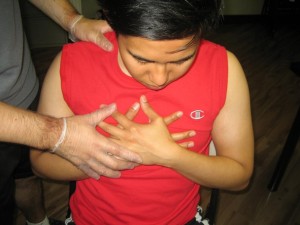Aspirin-induced asthma is brought about by using aspirin or other non-steroidal anti-inflammatory drugs (NSAIDs).
Asthma is a long-standing lung ailment that triggers symptoms such as wheezing, coughing and shortness of breath.
What are the causes?
The symptoms are brought about by issues within the airways such as:
- Tightening of the airway muscles which results to chest tightness and wheezing
- Irritation, swelling and excess mucus in the airways
If the individual is diagnosed with asthma, the signs often start after exposure to a trigger such as exercise, drugs, infections, stress or strong emotions.

What are the indications?
The initial signs of aspirin-induced asthma include:
- Sneezing episodes
- Runny or stuffed nose
- Warmth and redness of the face
The symptoms generally arise 1-3 hours after aspirin or NSAIDs were taken. In most instances, individuals with the condition also have nasal polyps, loss of sense of smell or long-term sinus disease.
Management of aspirin-induced asthma
If an individual has been diagnosed with aspirin-induced asthma, it is vital to avoid products that contain aspirin. Generally, the condition is treated in the same manner as with other forms of asthma.
The medications that are given to control asthma include:
- Rapid-relief drugs or rescue medications – these are given to manage asthma attacks.
- Long-term control drugs or controller medications – these medications are taken regularly to control the symptoms. These drugs are taken daily even if there are no symptoms present. The drugs provide rapid relief to wheezing during acute asthma attacks.
- Steroid drugs – these are taken daily to help control the symptoms. They must be taken even if there are no symptoms present.
In some cases, aspirin desensitization therapy is used. The individual is given a small dose in a healthcare facility. The dosage is steadily and carefully increased until the normal dose can be taken without triggering any symptoms.
